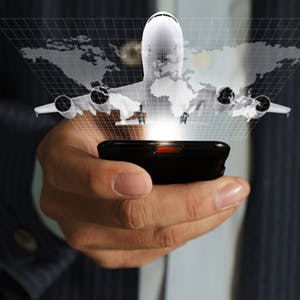Australians are champion travellers and we love exploring far-off lands, vibrant cities and peaceful beaches. These days it is becoming increasingly common for people to stay in touch with their family and friends back home by Facebook and Twitter and mobile devices are playing an ever-increasing role in this communication.
So, if you’re escaping from the winter blues heading overseas and taking your mobile phone, tablet PC or laptop along, there are few things you should watch out for. From sand and saltwater to pickpockets and poorly protected wireless networks, many dangers can befall your electronic companion. Here at Kroll Ontrack, we have developed the following tips which will help you to protect your data and limit damage if it does occur:
- Back up your data: This is probably top of the list of things you should do if you want to use your own device on vacation. It means you are protected if the hardware is damaged or lost. Whether you use an external hard drive, DVDs, or the online storage service of your cell-phone service provider, performing a backup will let you restore your data easily and with much less aggravation.
- Check your security settings: Settings that are sufficient for everyday scenarios using well-protected Internet connections might not be enough when traveling. You should check the strength of your passwords and the settings for cookies, and make sure your anti-virus software is running. This will reduce the risk of your device getting a virus when you are using a wireless hotspot or downloading photos from your phone in an Internet cafe. Even if you use a memory card or USB stick, you should check them before using them back home to be sure they are free of viruses. If you also disable your device’s automatic Bluetooth and Internet connection, you will have complete control over when your device accesses networks and thus becomes vulnerable to online threats.
- Update your systems: Software updates often contain bug fixes and reduce security vulnerabilities, so you should regularly check for new versions and install them. You can use firmware updates for your hardware components. In general, the more up-to-date your system is, the faster, safer and more stable the device will be.
- Protect your device from external influences: We humans might love sun, sand and sea, but these things can take their toll on sensitive mobile devices. If you don’t want to go without your favourite toy at the pool or on the beach, you should use a cover that will protect it from sand and spray. When using your device, you should also keep your distance from water and people splashing around. It is also important to make sure that electronic devices do not get too hot. For example, high temperatures can cause the write and read heads of the hard disk to expand, which will stop them from maintaining the correct track width when reading data. This will prevent the device from reading information. Many devices shut down automatically when exposed to excessive heat. If this happens, make sure you allow the device to cool down before using it again.
- Take precautions against theft: Experience shows that the risk of theft on vacation is higher than back home. It might be because you are distracted by your new surroundings and therefore less alert, or it might be because thieves are more likely to target tourists. Whatever the reason, it is best to leave your devices in a safe. If you do take them out with you, keep them close to your body, ideally in a secure pocket inside your bag. You can also install software that allows you to remotely locate and block a lost device. If you have performed a backup, you can at least reload your data onto a new device at home.
- Keep calm if things go wrong: Even if you take all possible precautions, you still may lose data or not be able to access it. In such situations it is important to remain calm. Even if at first glance it seems the data is lost, that needn’t be the case. If you think your laptop has a damaged hard drive, make sure you still transport it carefully. Any shaking or disassembly may make the damage worse. Don’t reach for the hair dryer if your device has come into contact with water, and the refrigerator is no solution to an overheated laptop. If you can’t just reconstruct the contents you should immediately seek professional assistance.
Users trying to rescue their own files often cause irreversible damage to their devices. Kroll Ontrack has a worldwide network of laboratories that are very likely to be able to rescue your data. Before you give us your final order confirmation, our data recovery specialists provide comprehensive consultation and carry out a thorough preliminary analysis to determine what can be saved so you can decide what data, if any, you would like to recover. That way, you are on the safe side, whatever happens and wherever you may find yourself this winter!

